Conference Event partners |
Organiser |
||
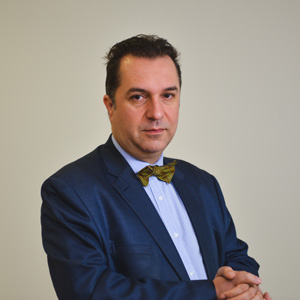 |
ESSEC Business School François Longin – ESSEC professor & Conference organizer “Extreme events in finance, although extraordinary, tend to appear on a regular basis. They also have dear consequences for all actors of the economy: financial institutions, firms, and most of all individuals. But what do we know about extreme events in finance? How to anticipate them and to manage them? How academic models can help? There are the questions that will be addressed during the conference. This conference brings together academics and practitioners. This conference brings together people from around the world. This conference brings together people from different areas: statistics, finance, economics and management. “ |
 |
Official partners |
||
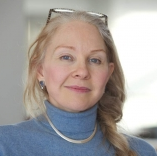 |
Labex MME-DII Patricia Charléty – ESSEC professor & Labex coordinator “Extreme events in Finance” is among the topics put forward by the Labex from its creation in 2012. Indeed, integration of the research of statisticians, econometricians and finance specialists undoubtedly boosts the analysis of extreme events in finance characterized by their rarity but with huge consequences for individuals and society. The conference on Extreme Events in Finance organized by ESSEC Business School and sponsored by Labex MME-DII will gather international scholars and Labex members. This scientific event will be a great opportunity to present research results and exchange ideas on the topic.” The conference is organized as part of the project Labex MME-DII (ANR11-LBX-0023-01). |
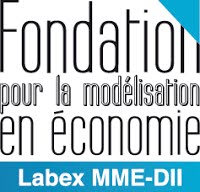 |
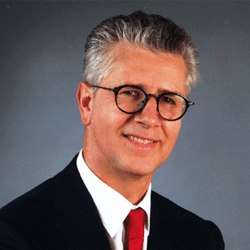 |
ACE Finance & Conseil Gabriel Eschbach – CEO “What is a crisis? It is a magical point of time between two worlds : the old world that disappears and the new world that emerges. History teaches us that the world evolves on a continuous manner : it builds itself, it destroys itself, it rebuilds itself and so on. It seems that the same drivers have been around from the beginning. Since the beginning of my career in finance, I have been surprised by the increasing speed by which the world evolves. Events tend to accelerate. In such a world, individuals must adapt to new conditions, seize new opportunities, manage new risks. The value of a financial advisor to accompany his/her clients has never been so great!” |
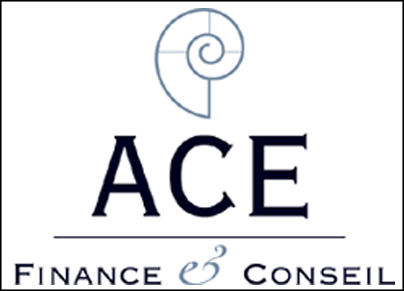 |
 |
Groupe La Française Xavier Lépine – Président du Directoire “What we have learned from repeated market turmoils is that macropolicies can protect the banking-financial system as a whole but leave the risk intact at the micro level. As an independant Asset management company, La Française is now well avare that extreme events can put at stake our very survival, if a price collapse and/or a liquidity stress makes us unable to fulfill our overriding commitment which is to give their money back to our clients. Hence our challenge, in front of the new regularity of extreme events, is to pursue our main target, that is to satisfy the investors’ performance requirement, while protecting ourselves against the risk of extinction. Considering that the traditionnal stochastic volatility model is no longer relevant, our company is thus deeply involved in the research for a more deterministic approach of shocks with binary effects. That is why we warmly support The conference on Extreme Events in Finance organized by ESSEC Business School which will bring interesting developments on this topic.” |
 |
 |
SMA Hubert Rodarie – Directeur Général Délégué “Extreme events are still mysterious. The great Deluge in the Bible, major disasters strike and structure the imagination of people and societies. But it is also founding narratives or meta-narratives that underpin social organizations. Financial markets are also subject to regular extreme events: the crashes and stock market storms. Can we call them facts such as earthquakes and tsunami, or are they directly linked to social constructions, which might prove as inappropriate? Indeed, they are the results of activities recognized as legal and prudential rules which organize them. Academics and research must therefore address these phenomena to answer these fundamental questions. SMA is pleased to participate in and support these efforts, it is in line with its business insurance.” |
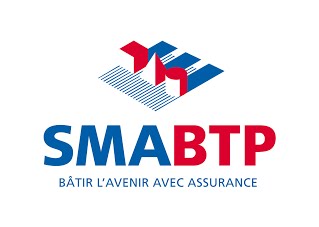 |
Media partners |
||
 |
Finance Innovation cluster Maximilien Nayaradou “Against the current financial and economic backdrop, extreme events in finance have a decisive impact on the evolution of our systems. The FINANCE INNOVATION cluster strives to foster innovation, providing support to counter risks and uncertainty in finance, portfolio management, risk management and behavioural finance. The White Papers published by the cluster, featuring the thinking of over one hundred experts, is testament to this commitment. In 2010, the first White Paper on Innovation in Insurance covered the management of major risks (involving demographics, the market, climate and regulations), while the upcoming report due in November 2014 will examine risk management with respect to Solvency 2. Risk management is an inherent part of FINANCE INNOVATION’s strategy across the board. It also supports research projects on these topics, by awarding labels and opening up opportunities for public funding (Agence Nationale de la Recherche, Programme d’Investissement d’Avenir, Fond Unique Interministeriel etc.). The Paris Financial Services Cluster proactively participates in research and innovation in finance, and is pleased to team up with ESSEC for its conference on Extreme Events in Finance. As a global Financial Services Cluster, FINANCE INNOVATION has implemented initiatives to facilitate the creation and development of ground-breaking projects in the finance sector, on major themes such as the economy, society and the environment, with a view to growth and employment, since its inception in 2008. Underpinned by a network of nearly 300 public and private members, FINANCE INNOVATION brings together stakeholders in banking, insurance, asset management, consulting and accounting, property, social economics, research and local and state-wide authorities.” |
 |
 |
CREAR Marie Kratz – ESSEC professor & CREAR founder “Extreme Value Theory (EVT) has proved to be very useful in engineering and other fields for decades, but it is still not a standard tool in finance, although heavy tails have been detected in financial returns for more than 20 years. It is a bit surprising that banks could ignore these tools for so long, whereas reinsurance companies used them for decades. With the financial crisis of 2008-09, the finance community at large and regulators realized the importance of modeling extreme events, in particular the need to model both the heavy tails and the non-linear dependence of risks. Nowadays, modern financial risk management cannot ignore EVT tools. It is why CREAR is so much involved in developing the research in extremes and risks, in particular for financial institutions, and is fostering exchanges and communication on these topics, via the Working Group on Risk or conferences such this 2.5 days international workshop. It gives a great opportunity to participants for being confronted with the state-of-the-art of EVT and its applications in finance. This forum promises to be quite interesting and lively, with specialists presenting their latest results and round tables discussing future developments and new challenges.” |
 |
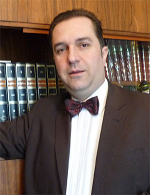 |
SimTrade François Longin – ESSEC professor & SimTrade project coordinator “SimTrade is both a pedagogical and research project. The objective of SimTrade to learn to act in financial markets. From market simulations by SimTraders, the idea is to understand how asset prices are formed and to explain stylized facts such as the Fréchet distribution for extreme price movements. Beyond the statistical approach, SimTrade tries to deeply understand financial markets through the behavior of market participants. The conference on Extreme events in finance organized by ESSEC Business School will be a place to confront different approaches to understand these events: statistics (mainly extreme value theory), mathematical and economics models and behavioral economics with experiments based on simulations.” |
 |
| Chair Edgar Morin of complexity Laurent Bibard – ESSEC professor & Chair Edgar Morin of complexity “Organizations may be understood as continuous to be reached balance between contradictory poles. One of the most demanding contradictions to be tackled nowadays is a tension between short run and long run. The intensification of this tension is particularly due to the globalization process which favors a deleterious detachment of the economic and the financial spheres one from the other. A real sustainable development demands that a minimum harmony be reached between the short term financial expectations and the medium and long term structural conditions of functioning of organizations.” |
 |
 |
 |
| Share this page on social networks: |
